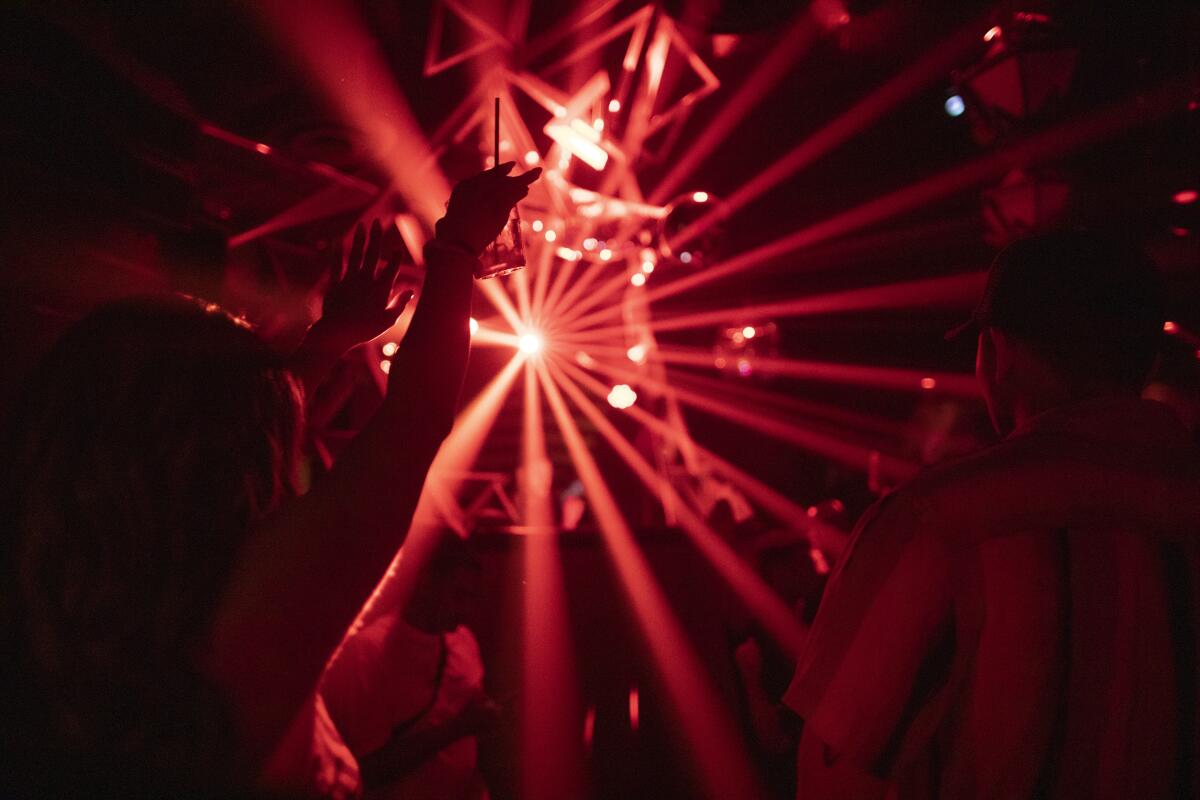One more round: California lawmakers try again to extend bar hours to 4 a.m.

- Share via
SAN FRANCISCO — A Democratic lawmaker who has championed the fight to keep bars, restaurants and nightclubs open late said Friday that he will try again to change state law, arguing that an extended nightlife could have a major impact on tourism, small businesses and local economies.
State Sen. Scott Wiener (D-San Francisco) announced SB 930, a bill that marks his third time on the subject, which would allow the sale of alcohol from 2 a.m. to 4 a.m. for nightlife establishments in seven cities including San Francisco, West Hollywood and Palm Springs. All of the cities, he said, asked to be included as part of a five-year pilot program.
“For too long, we’ve had a one-size-fit-all rule that all alcohol service should end at 2 a.m.,” Wiener said Friday at a news conference in San Francisco’s Castro neighborhood. “We know nightlife is so incredibly important for our culture and for our economy. When you think of why people move to cities, one of them is that they want to have a vibrant nightlife, be able to have fun and enjoy themselves.”
Wiener said that small businesses have been struggling to get back on their feet during the COVID-19 pandemic and an extension of nightlife activities would unify marginalized communities.
“Nightlife has been a haven for the LGBTQ community. It has been our living rooms, our space, where we come together, and even find our partners,” said Honey Mahogany, a partner at the Stud, a historic nightlife venue that was once San Francisco’s oldest operating LGBTQ nightlife venue but is temporarily closed due to the COVID-19 pandemic.
Ben Bleiman, a partner at Tonic Nightlife Group, said “When we have people traveling from out of town and we tell them they have to leave for the night, they cannot believe it.”
Currently, California allows the sale of alcohol from 6 a.m. to 2 a.m. for bars, nightclubs and restaurants — rules that have been in place for more than 80 years, since 1935 when the 21st Amendment ended the national prohibition on sales of alcohol.
In 2018, Wiener introduced a nearly identical bill, SB 905, which managed to pass through both the Assembly and Senate but was vetoed by then-Gov. Jerry Brown.
“We have enough mischief from midnight to 2 a.m. without adding two more hours of mayhem,” Brown wrote in his veto message.
In 2019, Wiener tried again with SB 58, which would have allowed overnight alcohol sales as part of a pilot project in 10 cities, instead of the seven listed in the new bill. It passed the Senate overwhelmingly with a 28-6 vote but was defeated in the Assembly.
“Now is the time to get this done. We are not a city without nightlife,” said San Francisco Assemblymember Matt Haney. “In many cases, these businesses were the first to close and the last to open. Giving them a few more hours, in many cases, will be the difference for whether or not they survive.”
Wiener is hopeful that Newsom, a former mayor of San Francisco with a background in the restaurant industry, will have an open mind about the issue if the bill reaches his desk.
Historically, opponents of the bill have been concerned about a possible rise in drunk driving and sexual violence incidents as a result of the two-hour extension on nightlife. And some of Weiner’s fellow Democrats may not be ready to make the change.
“It seems like adding two more hours of potential harm to a community that is already struggling to keep its constituents safe is not a good idea,” said Democratic state Sen. Dave Cortese, whose district encompasses much of Santa Clara County. Cortese added that he hasn’t yet decided on how he will vote on the bill this summer.
If enacted, each pilot city would have full control over how to apply the alcohol rules. Cities would have the discretion to limit those extended hours to certain neighborhoods or even streets, and could also choose what days of the week or year the businesses could extend their hours. Each business that decides to participate would have to go through the standard permitting process to obtain a liquor license for those additional hours.
Maria Davis, the owner of St. Mary’s in Bernal Heights, said the only reason she is still in business is because of the innovative policies during the COVID-19 pandemic such as to-go cocktail drinks and outdoor seating.
“I think there’s a real misconception that because our doors are open and restrictions have been lifted it means that we are thriving. But we’re not,” Davis said. “To watch those critical dollars walk out the door at 2 a.m. is painful.”
More to Read
Sign up for Essential California
The most important California stories and recommendations in your inbox every morning.
You may occasionally receive promotional content from the Los Angeles Times.











